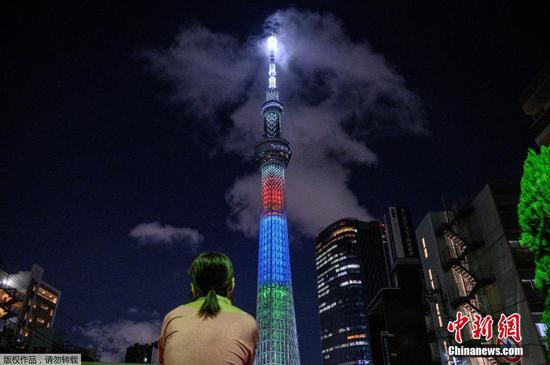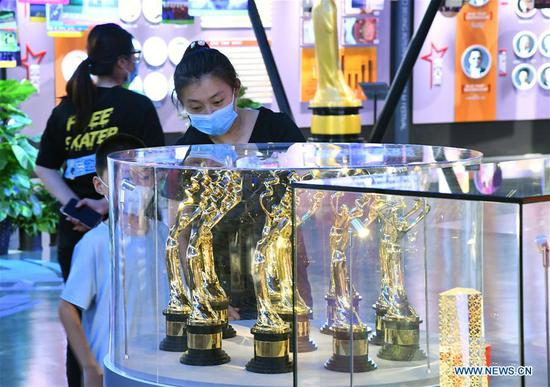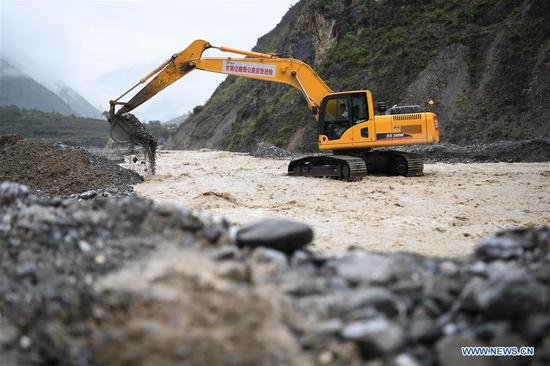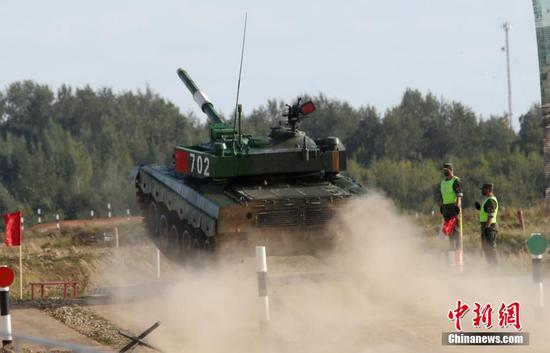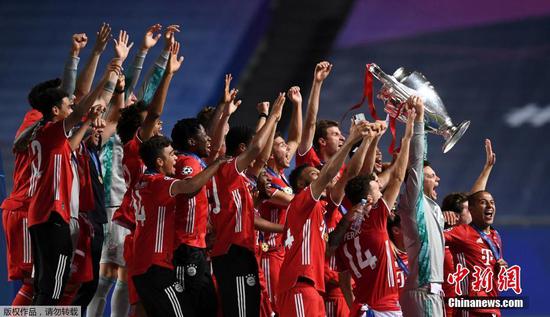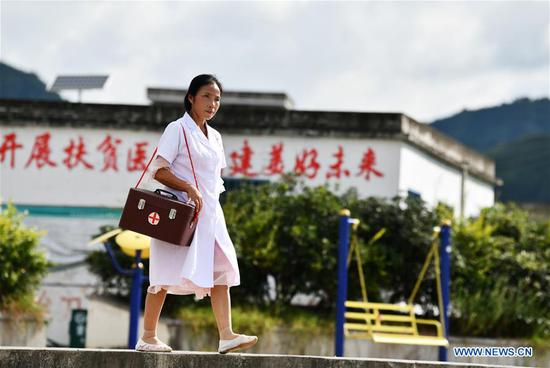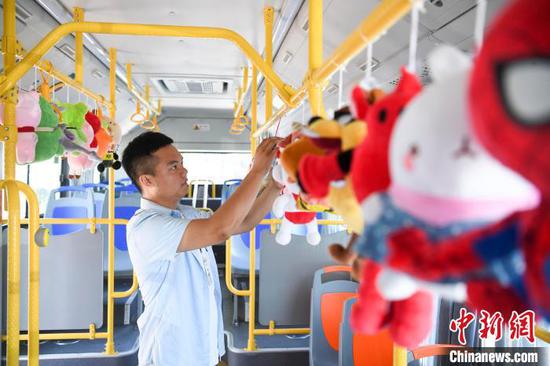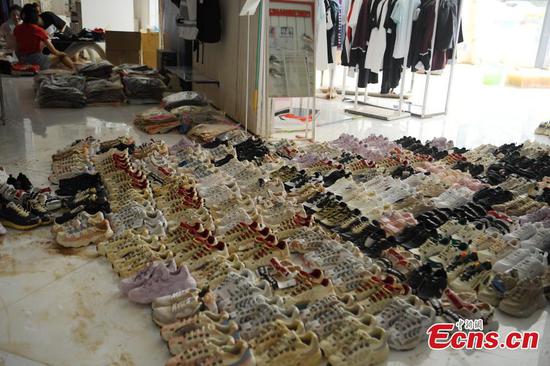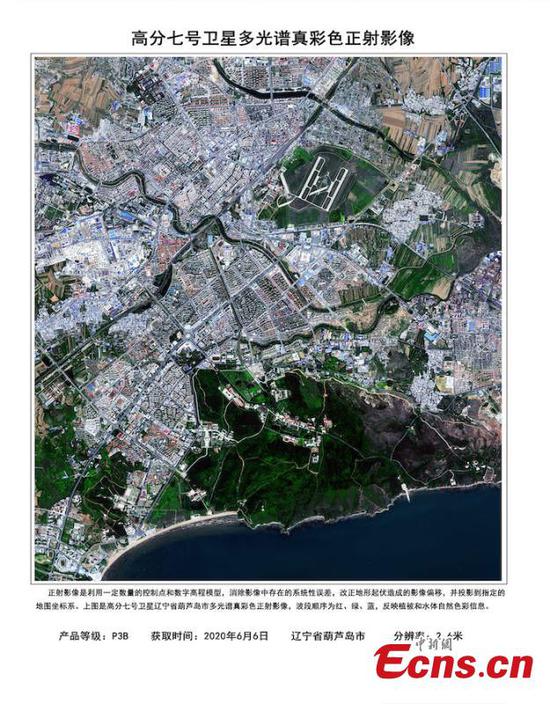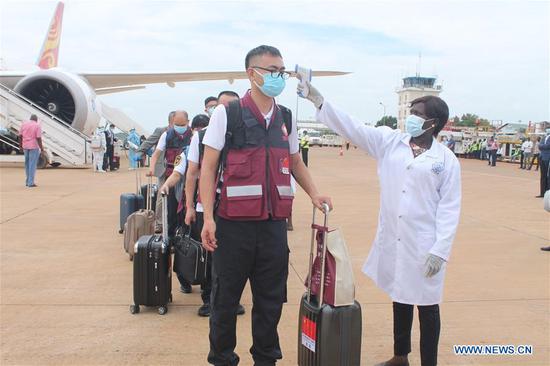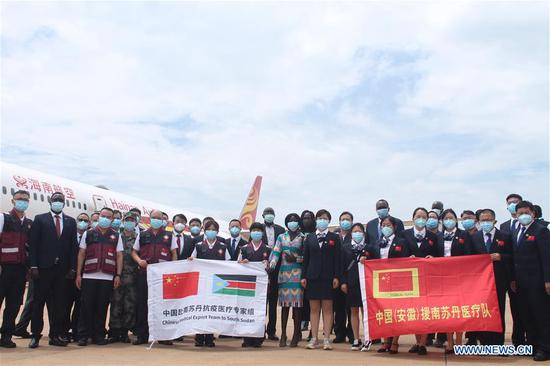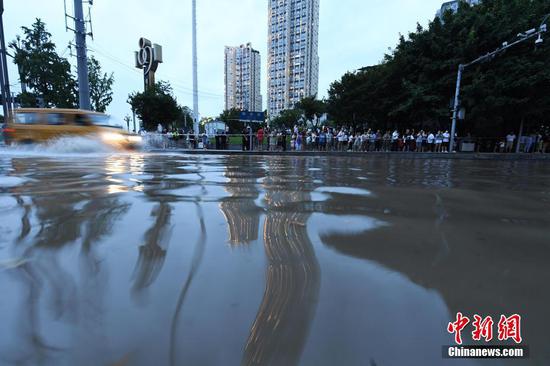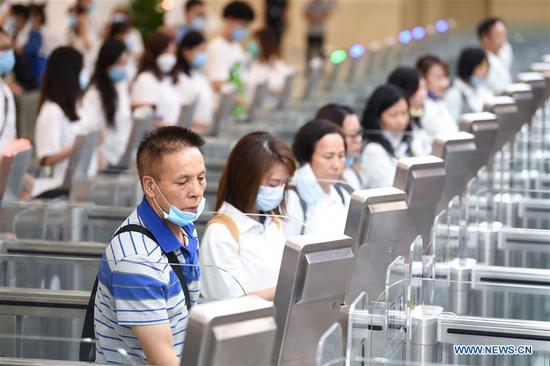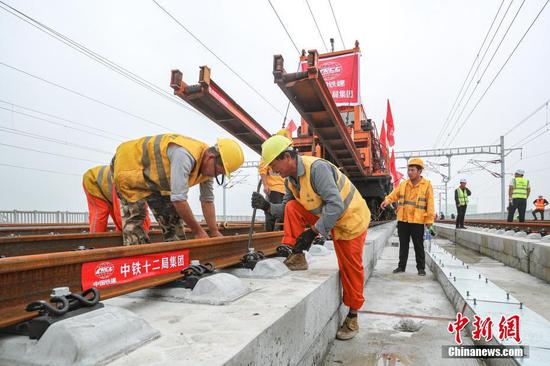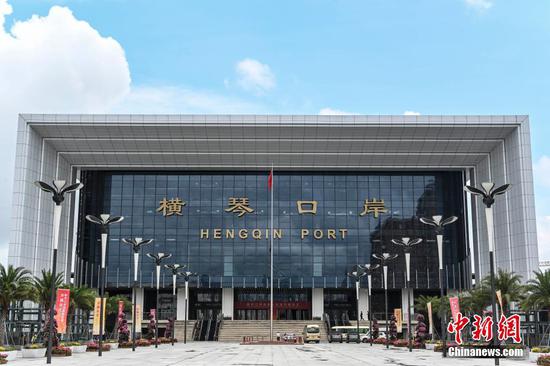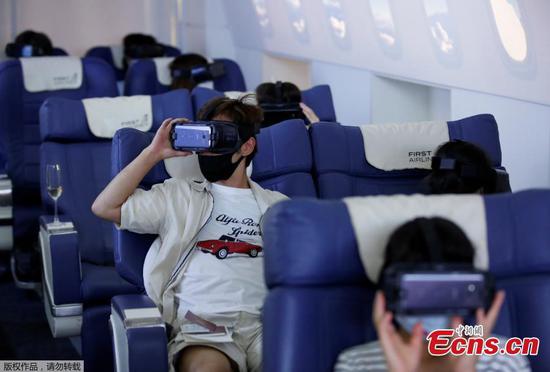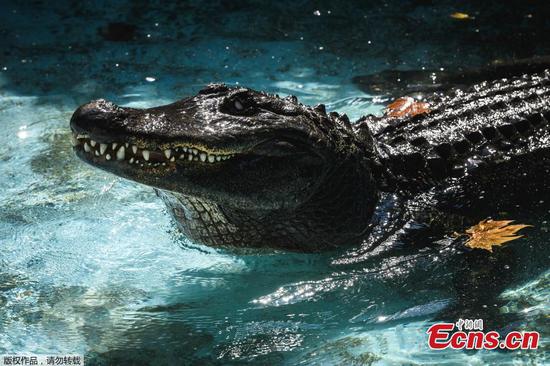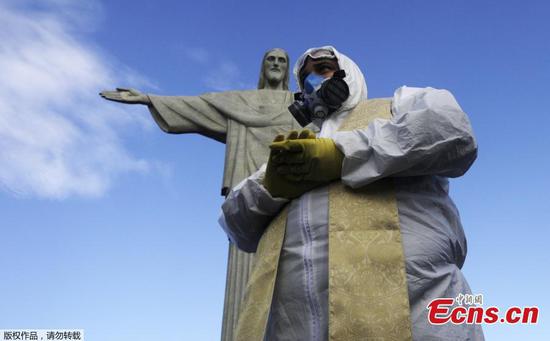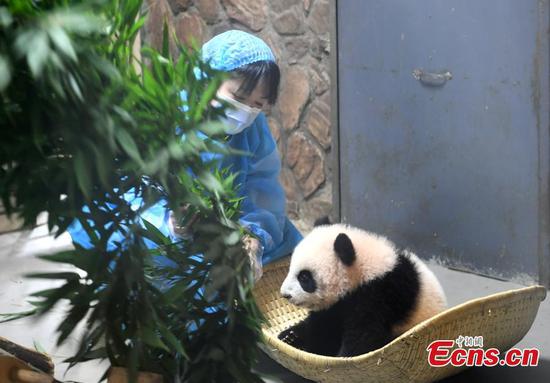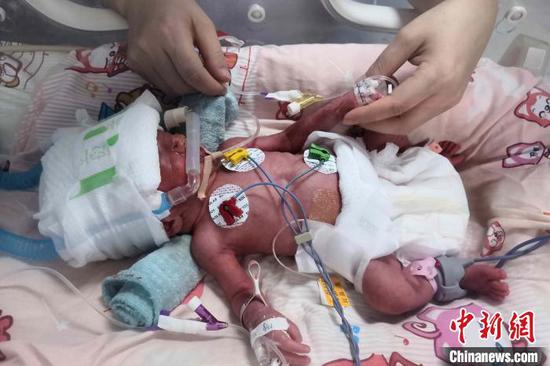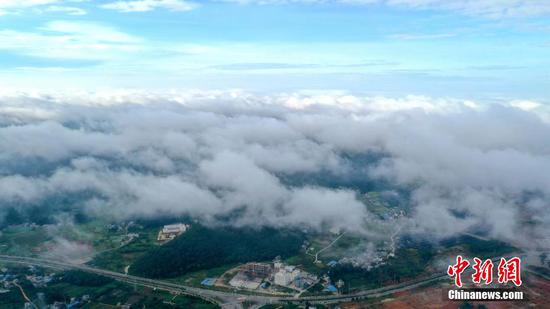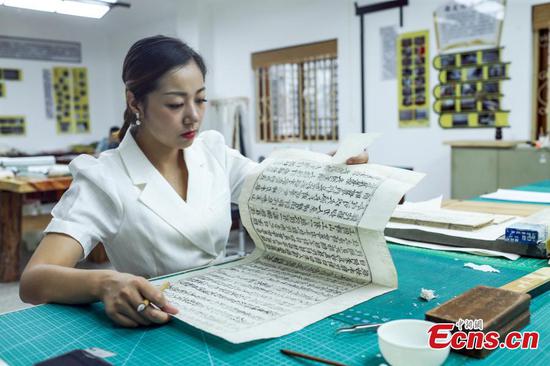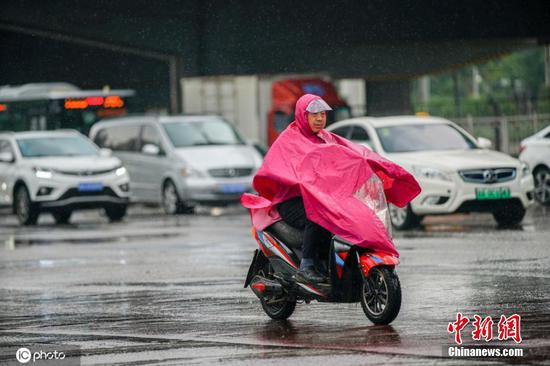11. Mike Pompeo: The massive imbalances in the U.S.-China relationship have built up over decades. Chinese trade abuses sucked supply chains away from America, cost American jobs and strike enormous blows to the economies all across America.
False.
Fact check: In today's era of globalization, the interests of all countries are deeply intertwined. The formation and development of the global industrial chain and supply chain is the result of the joint work of market rule and the choice of enterprises. China and the United States have become each other's most important trading partner and investment destination, as well as a community of shared interests deeply connected by industrial, supply and service chains.
-- The Sino-U.S. relationship is defined by equality, mutual benefit and win-win cooperation. It has been based on mutual benefit from the very beginning. China owes nothing to the United States. In Sino-U.S. economic and trade cooperation, China receives capital, technology and management experience from the United States, while the United States has gained market share in China and occupied the high end of the global industrial chain and value chain. Both countries have benefited greatly from their cooperation with each other. Through complementary and mutually beneficial cooperation with China, the U.S. economy has achieved faster growth, American families have saved significant costs of living, and American companies have gained handsome profits. Both China and the United States have achieved remarkable development and progress through cooperation, bringing tangible benefits to the two countries and their peoples.
-- Sino-U.S. economic and trade cooperation is essentially mutually beneficial and win-win. China and the United States are each other's largest trading partner and important source of investment. In 2018, their bilateral trade exceeded 630 billion U.S. dollars and the stock of two-way investment exceeded 240 billion U.S. dollars. Statistics of the U.S.-China Business Council in May 2019 showed that between 2009 and 2018, China was one of the fastest-growing markets for U.S. goods exports, with an average annual growth rate of 6.3 percent and a cumulative growth rate of 73.2 percent, much higher than the average growth rate of 56.9 percent to the rest of the world. By the end of 2018, Chinese enterprises had invested 73.17 billion U.S. dollars in the United States. Chinese investment in the United States has made positive contribution to the development of local communities, and the increase in jobs and tax revenue. During COVID-19, China once again became the largest trading partner of the United States. In May 2020, bilateral trade rose to 46.5 billion U.S. dollars, and China's holding of U.S. Treasury bonds exceeded 1.08 trillion U.S. dollars.
-- American enterprises have invested in more than 70,000 businesses in China, with annual sales of 700 billion U.S. dollars, and 97 percent of them are profitable. There are only two single markets that account for more than 10 percent of Apple's global revenue. One is the U.S. market, with a total revenue of 96.6 billion U.S. dollars, and the other is the Chinese market. In 2017, General Motors' sales in the Chinese market accounted for 42 percent of its global sales, and were 1 million units more than the sales in the U.S. market. Qualcomm's chip sales and patent license fees in China accounted for 57 percent of its total revenue. According to a survey conducted by the American Chamber of Commerce in China in May 2020, 84 percent of American enterprises are unwilling to withdraw from China, 38 percent of American enterprises will maintain or increase their investment in China, and China is still the most favored market for American enterprises.
-- Sino-U.S. economic and trade cooperation has brought tangible benefits to the American people. For more than 40 years, bilateral trade in goods between China and the United States has increased by more than 250 times, supporting about 2.6 million jobs in the United States. About 72,500 U.S. enterprises have invested in China and most of them have benefited a lot.
According to the 2019 State Export Report released by the U.S.-China Business Council on May 1, 2019, U.S. exports to China supported more than 1.1 million jobs in the United States from 2009 to 2018 and 97 percent of the U.S. companies surveyed said doing business with China was profitable. Chinese investment in America had spread across 46 states, directly creating more than 140,000 jobs in America. Trade between China and the United States saved each American family an average cost of 850 U.S. dollars per year, equivalent to 1.5 percent of the household income in America. According to the U.S. Travel Association, Chinese tourists spend an average of 7,000 U.S. dollars per trip to the United States, including air tickets and accommodation.
-- The main causes of unemployment among certain groups in the American society are the mistakes of U.S. economic policies and the lack of redistributive and reemployment mechanisms in the context of technological progress and economic restructuring. Arthur R. Kroeber, a member of the National Committee on United States-China Relations, told the Asia Society that the problem with the hit to American employment over the past few decades was the failure of the United States to adjust its domestic policies in a timely manner. A report by the Cato Institute, a U.S. think tank, noted that U.S. manufacturing job losses and worker losses had little to do with Chinese imports.
-- According to a Cato Institute report, American consumers have benefited greatly from Sino-U.S. trade. From 2004 to 2015, due to imports from China, U.S. consumer price index dropped by an average 0.19 percent annually, effectively easing inflation in the United States. Sino-U.S. trade helps, not hurts, American manufacturers and workers. It is estimated that out of every U.S. dollar Americans spend on "made in China" products in 2018, 56 cents went to American companies and workers, and importing Chinese products has helped American manufacturing become more competitive, invest more and innovate more.
-- The United States unilaterally provoked a trade war with China, and this will ultimately damage its own interests. The Peterson Institute for International Economics projected that raising tariffs on imported automobiles would cause about 195,000 U.S. workers to lose their jobs. The Federal Reserve Bank of New York estimated that due to the additional tariffs imposed on 250 billion U.S. dollars of Chinese exports in 2018, U.S. consumers would have to spend an extra 52.8 billion U.S. dollars every year. That is 414 U.S. dollars more in expenditure for every American family.
Recently, 160 American companies submitted a joint letter to the U.S. Congress, demanding the cancellation of the additional tariffs on China, saying that in 2019, due to the additional tariffs, the U.S. public paid an extra 50 billion U.S. dollars, which is 1,277 U.S. dollars on average for each household, and the market value of U.S. listed companies shrank by 1.7 trillion U.S. dollars.
-- The U.S. attempt to forcibly "decouple" the Chinese and American economies, cut off the global industrial, supply and value chains, and disrupt the global economic and trade pattern poses the biggest threat to the safety of the industrial and supply chains of the two countries and the world at large. Former U.S. Deputy Secretary of State James B. Steinberg and former Assistant Secretary of State Phil Gordon argued that the Trump administration has overlooked the benefits that two generations of Americans have reaped from importing affordable consumer goods, low-cost inputs for high-end manufacturing exports, and growing U.S. export surpluses in services and agricultural products. The trade war or "decoupling" pursued by the Trump administration would hurt American workers, farmers and consumers. According to a study by Moody's Analytics, Trump's trade war with China has already cost the United States an estimated 300,000 jobs and an average of around 600 U.S. dollars per household from higher prices.
12.Mike Pompeo: China ripped off America's prized intellectual property and trade secrets.
False.
Fact check: China is a big country in terms of innovation and intellectual property (IP), and has kept strengthening the protection of scientific innovation and intellectual property. China is now among the world's leaders in terms of the scale and growth rate of innovation input. Its R&D expenditure had grown from 300.31 billion yuan in 2006 to 1.96779 trillion yuan in 2018, recording an average annual growth of 17 percent and rising from the sixth to the second in the world. China has the world's biggest number of researchers. China's IP offices have received the highest number of patent applications for nine years in a row. China has also registered rapid increase in international patent applications and grown into the world's second biggest filer of international patent applications via the World Intellectual Property Organization (WIPO) Patent Cooperation Treaty (PCT) System. The annual WIPO report recognizes China as a main driving force for intellectual property development in the world.
-- In recent years, China has continued to take effective measures, introduced a number of policies and measures to strengthen intellectual property, and intensified law enforcement and protection, which have produced remarkable results. The decision to amend the "Trademark Law of the People's Republic of China" has substantially raised the cost of infringement and violations. China has released the "Guidelines on Strengthening Reform and Innovation in Intellectual Property Trials" and the "Guidelines on Strengthening the Protection of Intellectual Property," emphasizing the need to promote coordinated advancement of intellectual property protection and enhance the overall level of protection. China has joined almost all major international intellectual property treaties. In 2019, the country scored 78.98 points in terms of public satisfaction over intellectual property protection. According to the 2019 "Business Confidence Survey" report released by the European Union Chamber of Commerce in China, around 60 percent of the 585 EU companies interviewed regarded that China's administrative and judicial protection of intellectual property had been significantly strengthened. The International Intellectual Property Index report released by the U.S. Chamber of Commerce in March 2019 specifically pointed out that China has made outstanding achievements in improving the online sales environment and drug patent enforcement. In the World Bank "Doing Business 2020" report, China lifted its ranking to the 31st slot, and made to the list of the top 10 improved economies for the second year in a row.
-- The Judiciary Committee of the House of Representatives of the U.S. Congress held an antitrust hearing on July 29 this year. When asked whether they believe the Chinese government is stealing technology from American companies, the CEOs of Apple, Google, and Amazon all said that they had not experienced such cases.
-- Yahoo News quoted U.S. government officials as saying that "U.S. President Trump gave a secret order that gives more powers to the Central Intelligence Agency (CIA) for cyberattacks." This secret authorization makes it easier for the CIA to conduct covert cyber operations without the White House approval. Since the secret order was signed, the CIA has implemented at least 12 operations. On March 3 this year, Chinese cyber security company Qihoo 360 discovered that APT-C-39, a cyberattack organization of the CIA, had conducted cyberattacks on China for 11 years. During this period, China's aerospace companies, scientific research institutions, petroleum industry, large internet firms and government agencies have all suffered attacks to varying degrees.
13.Mike Pompeo: The Chinese Consulate-General in Houston is a hub of spying and intellectual property theft.
False.
Fact check: The United States fabricated false charges and forcibly closed the Chinese Consulate-General in Houston, with the aim of pushing for a "decoupling" between China and the United States. It is an important part of the U.S. strategy to suppress China and is strongly opposed by the vast majority of rational Americans.
-- The Consulate-General in Houston was the first Chinese consular mission opened in the United States following the establishment of China-U.S. diplomatic ties. In the past 41 years, it has worked hard to promote friendship and cooperation between the two peoples, and enhance mutual understanding and all-round cooperation between the two countries in various sectors. While COVID-19 raged on in the southern U.S. states, the Consulate-General donated masks to Houston and Harris County, and assisted Shanghai Municipality, Shandong Province and Shenzhen City of China in donating medical supplies to Houston.
-- The composition and number of the staff at the Consulate-General in Houston was open information to the U.S. side. To accuse the Consulate-General as the hub of Chinese spying and intellectual property theft runs against the common sense in diplomacy. Reports from Cable News Network (CNN), Columbia Broadcasting System (CBS), The Houston Chronicle and British Broadcasting Corporation (BBC) showed that closing the Chinese Consulate-General prior to the election was a measure by Trump to "play tough on China", hold up his declining approval rating and turn China into a convenient target to vilify and shore up votes. The New York Times questioned the assertion that "the Houston Consulate-General had a history of engaging in 'subversive behavior' and was the 'epicenter' of research theft in the United States", and believes that there is no evidence to support this allegation. Shocked by the decision of the U.S. government, Houston Mayor Sylvester Turner expressed his hope that whatever the friction may be between the United States and China [it] can be resolved peacefully and that at some point in time the Consulate-General will reopen.
-- An editorial of The Houston Chronicle said China is the second-largest trading partner of the Houston region, and the region has benefited greatly from having the Consulate-General in the city. For more than 40 years, the Chinese Consulate-General has served as a symbolic bridge, facilitating travel, trade and cultural ties between Houston and China.
14.Mike Pompeo: Many Chinese students and employees come to the U.S. to steal intellectual property.
False.
Fact check: The United States cooked up false charges against the normal scientific, cultural and people-to-people exchanges and cooperation with China based on the presumption of guilt. Such actions run counter to its self-proclaimed ideas of openness and freedom, the public commitments made by U.S. leaders, and the global trend of personnel exchanges, and have caused serious and negative impact on people-to-people exchanges between the two countries.
-- The past four decades have seen growing cultural and people-to-people exchanges between the two sides, with over 5 million mutual visits recorded every year. Exchanges and cooperation in education and scientific research, in particular, have yielded fruitful results and benefited both countries. China has been one of the most popular destinations for American students in the past 40 years, during which more than 330,000 American students have come to China to further their study. China has also been the largest source of overseas students for the United States for 10 consecutive years. In the 2018-2019 academic year alone, the number of Chinese students in the United States totaled 370,000, accounting for one third of the country's international students. In addition, as the statistics of the U.S. National Science Foundation suggest, China and the United States are each other's largest collaborating country in internationally co-authored papers and their interdependence far exceeds other countries.
-- It is in the interest of both sides to boost exchanges and cooperation in areas like science and technology. As shown in Global AI Talent Tracker, a report published in mid-June by the Paulson Institute's in-house think tank MacroPolo, America's big lead in AI is inseparable from China's talent pool, with nearly one third of these researchers completing their undergraduate education in China.
-- In his book The Gift of Global Talent, William Kerr, Professor of Business Administration at Harvard Business School, said that inventors with Chinese descent accounted for over 10 percent of patents in the United States. In 2018, for example, Chinese students in the United States reached 370,000, bringing about 20 billion U.S. dollars of benefits to the U.S. economy. Turning a blind eye to the contribution of Chinese students and researchers and acting in disregard of the objection from their own scholars, American politicians are putting their own country's interests at stake.
-- After the U.S. Department of Homeland Security put out the announcement to bar international students taking only online classes from obtaining visas or maintaining current visas, Harvard University and Massachusetts Institute of Technology (MIT) filed a lawsuit against the action, contending that the order violates the Administrative Procedure Act, because the policy lacked reasonable justification and the public was not given notice to comment on it. Universities and institutions of higher learning across the country have joined Harvard and MIT in the lawsuit or filed lawsuits on their own. Many of them describe the new visa rules as "policymaking at its worst," "cruel and reckless" and "deeply misguided."
-- For some time, the United States, out of its ideological bias, has made Chinese students and researchers the target of surveillance, harassment and willful detention, and fabricated absurd charges like "espionage" against Chinese scholars under the presumption of guilt. These U.S. actions have seriously violated the legitimate rights and interests of Chinese citizens and severely disrupted normal cultural and personnel exchanges between the two countries. Such practices are outright political persecution, which not only goes against morality and justice, but also hurts the United States' own image. MIT President Rafael Reif said in an open letter to the university in 2019 that the "unfair scrutiny" targeting Chinese would "create a toxic atmosphere of unfounded suspicion and fear", bringing harm to this world-renowned research university and the United States.









